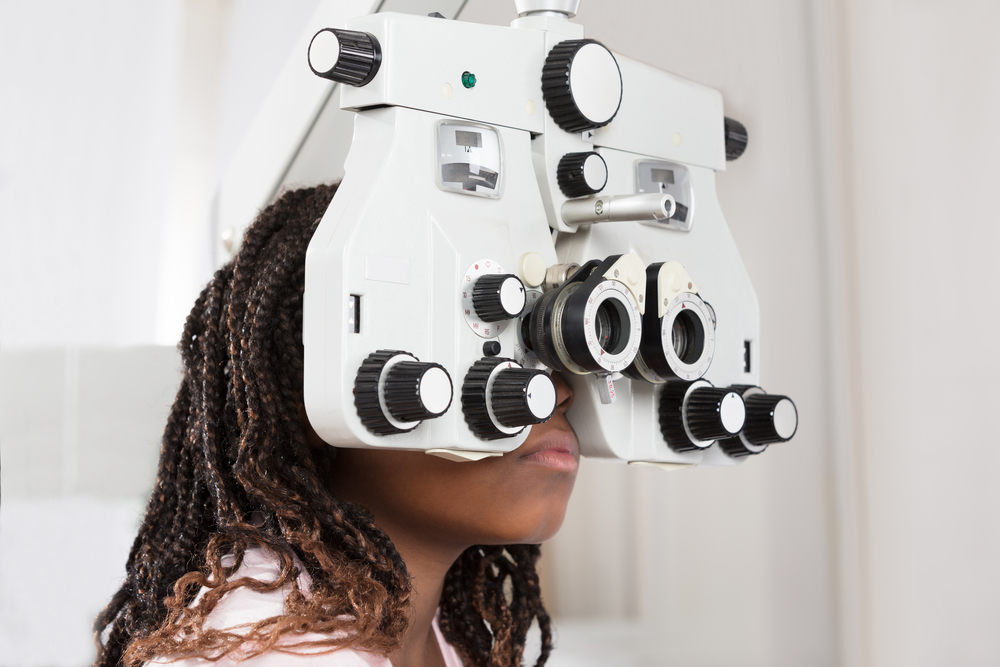
High myopia, also known as severe short-sightedness, is a condition where the eye grows too long from front to back. As a result, light doesn't focus on the retina as it should, leading to blurred vision. While this condition typically affects adults, it's particularly concerning in children because their eyes are still developing. Understanding what causes high myopia in children is vital in finding ways to prevent and manage the condition.
What Causes High Myopia in Children?
The exact cause of high myopia in children is still a topic of ongoing research. However, a combination of genetic and environmental factors is believed to play a significant role. In terms of genetics, children with myopic parents are more likely to develop the condition themselves. This familial connection suggests a certain level of hereditary influence.
On the environmental front, lifestyle changes over the past few decades have led to children spending more time indoors and on screens. This lack of natural light exposure and increased near work, like reading or using digital devices, has been associated with the onset and progression of myopia.
The Importance of Slowing Progression of High Myopia
Given the potential serious eye health complications associated with high myopia, it's not only important to detect and treat the condition early but also to slow down its progression. Slowing the progression of myopia in children can significantly reduce the risk of developing severe eye conditions later in life.
Myopia can affect a child's quality of life. Blurred vision can hinder a child's performance in school and prevent them from fully participating in sports and other recreational activities. Therefore, managing the progression of myopia not only has long-term health benefits but also immediate, tangible impacts on a child's daily life.
Myopia Management Methods for Children
There are several myopia management methods available for children. One of the most common is the use of corrective glasses or contact lenses. However, while these help improve vision, they don't necessarily slow down the progression of myopia.
More recently, specialized contact lenses and glasses have been developed to not only correct vision but also slow down myopia progression. These include orthokeratology lenses, multifocal lenses, and bifocal glasses.
Apart from optical interventions, certain medications like low-dose atropine eye drops have shown promise in slowing down myopia progression. Lifestyle modifications such as limiting screen time, promoting outdoor activities, and ensuring good lighting while reading or studying can also play a significant role in managing myopia in children.
The Role of Regular Eye Exams
Regular eye exams are crucial in detecting myopia early and starting management strategies as soon as possible. Eye care professionals can accurately measure refractive errors and diagnose myopia using various techniques. Early diagnosis allows for prompt intervention, which can greatly slow down myopia progression and prevent high myopia.
Regular eye exams can also help detect any accompanying eye conditions that children with myopia may be prone to, such as lazy eye or crossed eyes.
Parents and caregivers should be vigilant about any signs of vision problems in children, such as squinting, headaches, or difficulty in reading or seeing distant objects. If any of these signs are noticed, it's essential to schedule an eye exam immediately.
Conclusion
High myopia in children is a multifaceted condition influenced by both genetic and environmental factors. Understanding its causes and risk factors is essential in preventing and managing the condition. Regular eye exams play a crucial role in early detection and treatment, and various myopia management methods can help slow down its progression.
For more information on high myopia in children, visit Hunter Family Vision in our Leawood or Prairie Village, Kansas, office. We provide quality eye care services and products for the entire family. Please call (913) 681-8555 or (913) 381-2323 to schedule an appointment today. For after-hours urgent care, please call (913) 204-0239.











